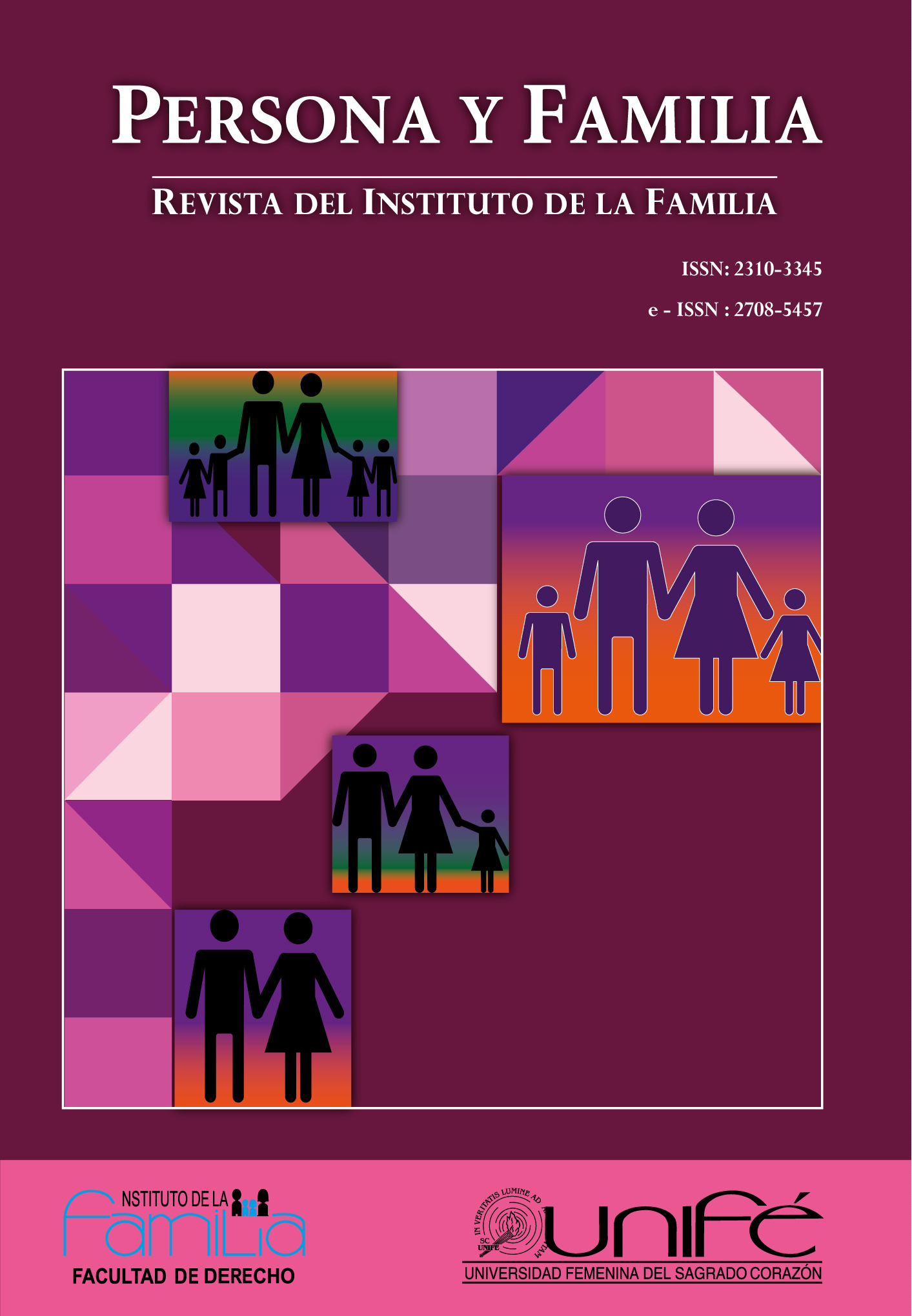Vacíos legales con respecto de un caso de reproducción asistida. Un enfoque desde la perspectiva del análisis económico del derecho
DOI:
https://doi.org/10.33539/peryfa.2022.n11v1.2570Palavras-chave:
Negación del reconocimiento, reproducción asistida, donantes anónimos, externalidades, costos de transacciónResumo
La jurisprudencia peruana ha puesto en evidencia los vacíos jurídicos existentes en materia de derecho procesal familiar respecto de aquellos casos en los que se pone en práctica las Técnicas de Reproducción Asistida, tal es el caso de las consecuencias jurídicas de iniciar una acción de negación del reconocimiento del hijo extramatrimonial concebido por reproducción asistida sin consentimiento y con la intervención de un donante anónimo de gametos masculinos. En este sentido, encontraremos que el sujeto activo de la relación material se va a encontrar en una situación de disyuntiva donde la tutela del Estado a través de los órganos jurisdiccionales se presenta como la vía de solución adecuada para cubrir los altos costos de transacción que generan los vacíos legales respecto de los donantes anónimos de gametos masculinos. Sin embargo, lejos de hallar una solución al conflicto, el individuo se ve enfrentado a decisiones injustas que conllevan a nuevas situaciones que, contrariamente a lo esperado, le generan mayores costos de transacción.
Downloads
Downloads
Publicado
Como Citar
Edição
Seção
Licença
Copyright (c) 2022 Patricia Carranza Chunga

Este trabalho está licenciado sob uma licença Creative Commons Attribution 4.0 International License.










